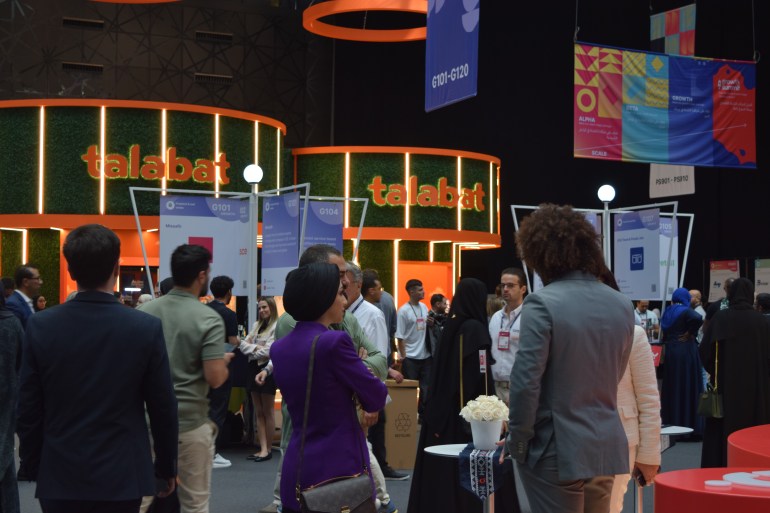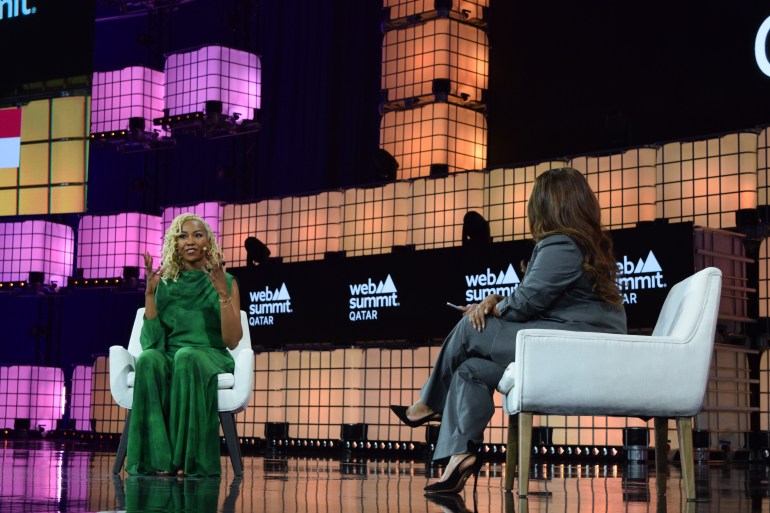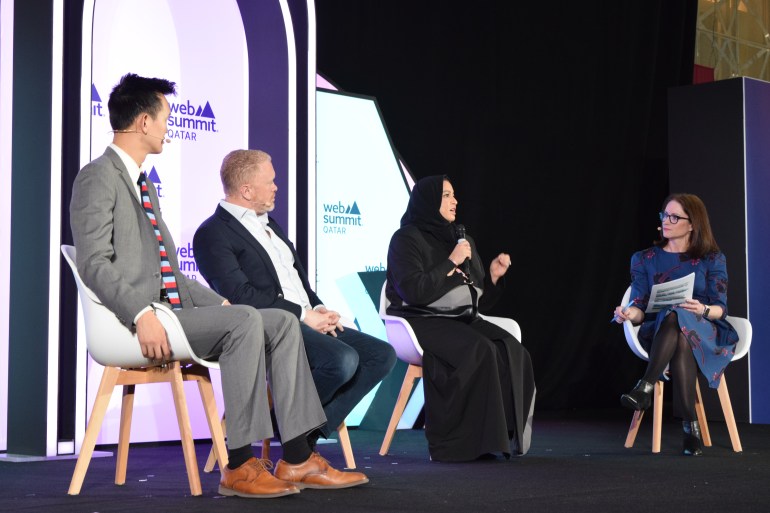Doha, Qatar – At one of the world’s largest technology conferences, whether on the main stage, on its side panels or in the dozens of glitzy and imposing company booths, there was one term on everyone’s lips: technology. artificial intelligence (AI).
At the Web Summit – organized for the first time in the Middle East in Doha – and ending on Thursday, entrepreneurs, investors and business leaders from around the world were all talking about the capabilities of AI.

Yet alongside this enthusiasm, experts are increasingly concerned that these technologies could exacerbate the inequalities that divide the world.
Technologies, including AI, run the risk of amplifying already existing prejudices, according to Ayo Tometi, co-creator of the American anti-racist movement Black Lives Matter.
“We are literally seeing bias programmed into the technologies deployed in our communities. And these prejudices must be fought,” Tometi said during the summit.
The social justice leader shared the example of predictive policing tools, which have been particularly harmful to people of color, particularly Black people in the United States, she said.
According to a report from the MIT Technology Review, there are broadly two types of these tools currently in use in the United States.
The first involves tools that use location-based algorithms to predict where a crime is likely to occur. The second concerns tools that rely on data about people, such as their age or gender, to predict who might be involved in a crime.
According to a study by accounting giant Deloitte, smart technologies like AI could help cities reduce crime by 30 to 40 percent.

But these technologies, Tometi said, are “a real cause for concern, because we have yet to address racism and anti-Back racism within the criminal justice system.”
When these technologies are distributed, they are considered neutral – but that is simply not the case, she said.
“(We have) seen cases where people are currently locked up because of a faulty facial scanner. They just don’t see our faces the same way, they don’t recognize our features,” insisted Tometi.
“There is so much prejudice and stereotype discrimination that is normalized through these technologies. »
AI and the digital divide
In addition to amplifying existing biases, another concern shared by experts regarding AI technologies is that they could exacerbate the global digital divide.
Countries need to “accelerate their development in AI (by) being a producer rather than a consumer,” said Alaa Abdulaal of the Saudi-based Organization for Digital Cooperation, speaking at the summit .
Abdulaal added that creating upskilling opportunities can narrow this gap and governments cannot do this alone; civil society organizations should intervene.
Jihad Tayara, CEO of UAE-based Evoteq, offered a counter-view, saying that while the race for AI supremacy on the global stage depends on the availability of funding, its consumption in the world is reducing the digital divide.
“Most countries now have better access to connectivity,” Tayara said at the summit, adding that cloud computing and storage services are getting cheaper and data is becoming more widely available.
However, on the AI production front, some countries are still far behind, the CEO acknowledged.
A recent trip to sub-Saharan Africa helped Tayara and his team understand, he said, that this region does not yet have a basis for replicating his company’s “advanced” AI analytics in the pharmaceutical industry .

Yet countries around the world are far more fascinated by the potential of AI today than they were during the rise of mobile technologies or the creation of the Internet itself, according to Frank Long, vice president of investment banking giant Goldman Sachs in the United States.
“This is partly due to the enormous economic impact that (AI) could have, but also its direct geopolitical applications,” Long said at the Web Summit.
Long also argued that the race to develop AI technologies would be multi-layered, adding that “dynamic initiatives” were being launched around the world.
“I think it’s not going to be a simple horse race of this person or that person, this country or that country,” he said. “It will be a full stack with participants and competitions at every level of the stack.”


